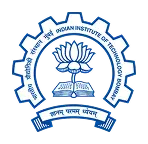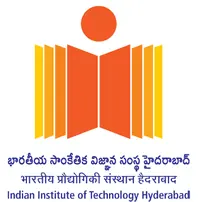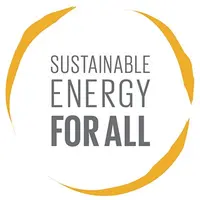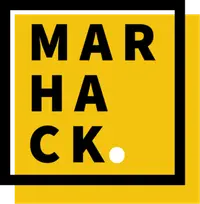A Stanford Doerr School of Sustainability initiative
Global Sustainability Challenge
An annual global challenge where students design, implement, and showcase real-world sustainability solutions—supported by a Stanford-led collective of leading educational institutions and experts worldwide.
Registration for the 2025-26 challenge is now closed. Stay updated on future opportunities and program announcements.
Hear from our founding partners and student leaders
A global collaboration of leading organizations and experts









A Global Challenge in Motion
Regional & Global Finals
The GSC season spans continents, cultures, and cutting-edge ideas. Four regions. One finale. A world of possibility. Each final offers students a platform to share, refine, and elevate ideas before converging at the Global Finale.
Pacific Asia + Australasia
Jan 17–18, 2026
Zhejiang University, China

South Asia & Middle East
Feb 7, 2026
IIT Bombay, India

Europe & Africa
Feb 13–15, 2026
Munich, Germany

Americas
Feb 13, 2026
Stanford University, USA

Global Finale
April 29, 2026 • TUM, Garching, Germany
Awards: US $35,000 cash pool + Medals + Invite to Stanford EcoGlobal 2026 program
About the challenge and how it works
The challenge is designed to move bold and innovative ideas to real-world solutions. It offers students support and visibility at every step, from early research and design to building, testing, and sharing their work worldwide.
Phase 1: Ignite
Late August - Early November 2025 | Deadline: November 10, 11:59 PM UTC
Team up, tune in, and design forward. Form your team, choose a theme, and explore problems through research and stakeholder engagement. Create your concept and submit your application.
Key Deliverables: Team registration, problem statement, solution concept, and early mockup
Phase 2: Build
Late November 2025 - January / Early February 2026
Build, test, and showcase. Develop working prototypes, conduct user testing, and refine your solution. Present your progress at regional showcases with live demonstrations.
Key Deliverables: Working prototype, testing documentation, and 10-minute live presentation
Phase 3: Shine
February - April 2026
Refine and present at the Global Finale. Incorporate feedback, improve your solution's scalability, and pitch to a global jury. Top teams receive awards and ongoing support.
Key Deliverables: Final presentation, demo, and implementation plan for global impact
Guidance. Feedback. Community.
Behind every team is a network of mentors, judges, and peers who guide, challenge, and support the work as it grows.

Mentorship
Students can access general guidance and support from experienced professionals as they work on their projects.
Judging & Feedback
Projects are evaluated at multiple stages by a combination of expert judges and AI-supported review.
Regional Ambassadors
Ambassadors support outreach, coordination, and local connection. They help build regional networks, and ensure every team is seen and supported.
Beyond the Challenge
All teams benefit from new experiences, lasting connections, and a supportive community that continues after the challenge.
Annual themes provide a common focal point
Every team in the challenge chooses a theme — a broad area of work that grounds their project. Themes help focus the research and shape how teams define impact. This year, the challenge invites solutions in two key areas: Sustainable Energy, and Adaptation & Resilience.
Solutions Approach
Solutions should aim for real-world impact, right-sized to what a student team can meaningfully achieve in an academic year. We encourage participants to work across disciplines and contexts — technology, policy, finance, data, or even storytelling — to design solutions that are practical, responsive, and adaptable. The most compelling projects will demonstrate thoughtful design, stakeholder understanding, and a pathway to implementation that is both locally relevant and globally scalable.
Registration for the 2025-26 challenge is now closed
Subscribe for future opportunities →01 Sustainable Energy
Develop scalable and impactful solutions that reduce emissions while improving affordability and reliability in the energy sector. Solutions may address clean energy solutions covering generation, transmission, distribution, or storage.
02 Adaptation & Resilience
Develop a solution that enhances the resilience and ability of people, infrastructure, or natural systems to withstand and adapt to the intensifying impacts of climate change. Solutions may address disaster preparedness, resilient infrastructure, climate-smart agriculture, water security, or other critical adaptation needs.
Celebrating innovation with meaningful recognition
Stanford University has earmarked significant funding to recognize and reward the most impactful sustainability solutions. Our prize structure celebrates excellence across both challenge themes.
Total Prize Pool
$35,000
1st Place
$10,000
First place winners in each category
2nd Place
$5,000
Second place winners in each category
3rd Place
$2,500
Third place winners in each category
Two Challenge Categories
Each category awards prizes to the top three teams
Beyond Monetary Prizes
- •Global recognition and visibility
- •Networking opportunities with industry leaders
- •Mentorship and guidance for implementation
Stanford EcoGlobal Program
6 GSC winners (3 from each theme) will gain exclusive access to Stanford's EcoGlobal program, designed to equip ecopreneurs to scale sustainability ventures worldwide.
Interactive Workshop Series (Summer 2026)
Led by Stanford faculty and practitioners, equipping participants with knowledge and tools to discover opportunities, design and build ecoventures, and lead in complex social and environmental systems.
Global Community Events
Foster connection and peer learning with fellow ecopreneurs and sustainability leaders worldwide.
Demo Day (Fall 2026)
Pitch your venture to investors, mentors, and the broader ecopreneurial ecosystem.
Registration for the 2025-26 challenge is now closed
Subscribe for future opportunities →Additional recognition awards and opportunities will be announced throughout the challenge
Explore Learning Resources
Discover curated resources to help you build sustainability knowledge, develop essential skills, and design impactful solutions for the Global Sustainability Challenge.
Knowledge Resources
Research papers, case studies, and foundational materials to deepen your understanding of sustainability.
Skill Development
Practical tools, guides, and templates to build the technical and soft skills needed for your projects.
Implementation
How-to guides, standardized templates, and best practices to help you implement and scale your sustainability solutions.
Subscribe for Updates
Join the GSC newsletter to be first in line for challenge updates, application announcements, team formation opportunities, and exclusive insights. You'll also receive our newsletter with community highlights and special events.
About Us
Inspired by this vision, the Doerr School of Sustainability, Stanford's first new school in 75 years, is bringing together a consortium of mission-aligned universities and youth-serving institutions to educate, inspire, and mobilize youth worldwide to take on this planetary challenge.
To meet the scale, urgency, and complexity of sustainability, we need to be bold and reimagine education. And we can't do it alone.
This challenge is a perfect example of how universities live up to their social contract – sharing knowledge, fostering curiosity and training future leaders – that’s our social contract for the 21st century.
Founding partners include:
Stanford Doerr School of Sustainability | The Hong Kong University of Science and Technology | Indian Institute of Technology Bombay | Imperial College London | Zhejiang University | Technical University of Munich | Young Global Impact | MakerGhat | Maker Bhavan Foundation










Knowledge Partners
Our knowledge partners bring essential expertise to the Global Sustainability Challenge, offering technical guidance and knowledge support to the community.



Community Partners
Our community partners amplify the Global Sustainability Challenge through their technology platforms, networks, and global reach.


